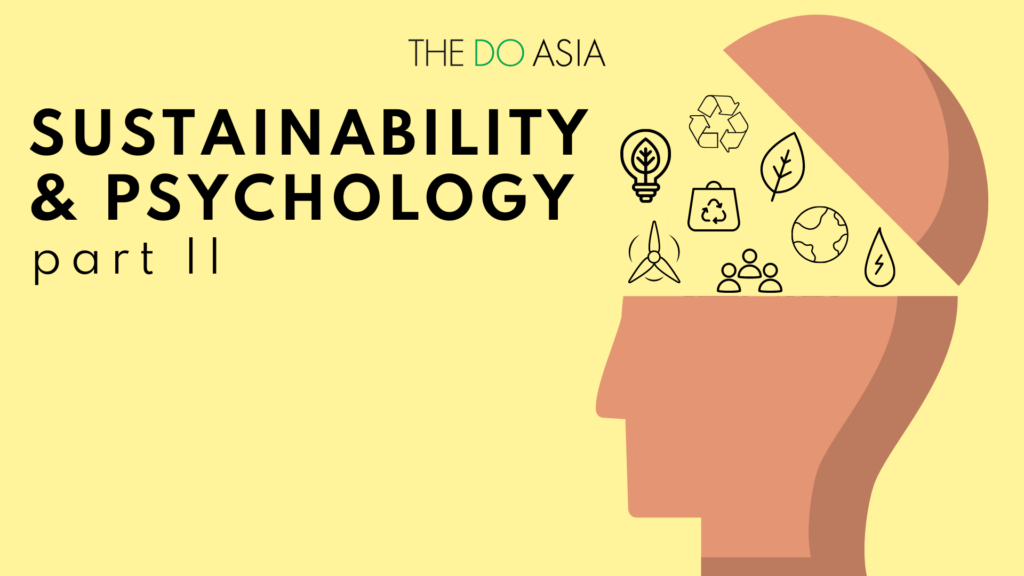We are looking at the relationship between social psychology and sustainable behaviors in this two-part series. Together, we will explore four proven ways to encourage more environmentally conscious behaviors.
We took a look at social norms last time. Let’s discover four other strategies to make our future more sustainable today.
1 – Keeping track of consumption
Research showed that keeping track of our behaviors is the first step to changing them. Simply keeping track of water consumption could reduce water consumption, and keeping track of the amount of air pollution prevented by not driving cars reduced car driving among college students. If you want to try the exercise, you can do so here: http://people.virginia.edu/~tdw/Driving.file.htm.
2 – Introducing a little competitiveness
If we know our performance on a certain sustainable behavior relative to others, we might try to “win” them. Consider this example from a study: Units A and B of a factory were told to conserve energy. Unit A received feedback on its performance relative to unit B, and unit A conserved more energy. This information might have motivated unit A to perform better than the B.
3– Inducing hypocrisy
Hypocrisy in the context of sustainable behaviors could be, for example, making someone aware of their wasteful behaviors and have them publicly express otherwise (i.e., they are practising sustainable actions).
In a study, some students were made aware of how they wasted water in the shower. Then, these students had to convince the public to save water. Specifically, the students signed their names on posters that called on people to save water by taking shorter showers because students declared they had been doing the same. This procedure made students realize they were “hypocrites.” On the one hand, they were preaching water conservation. But, on the other hand, they are actually doing the opposite. Nobody likes to be a hypocrite, because our brains will get confused—Am I an environment warrior, or am I a liar?
When we realize our actions and ideals are different, we feel uncomfortable. As a result, we might be motivated to change our behaviors to match our ideals. Indeed, this happened in the experiment: Students who realized they were hypocrites started to take shorter showers. Other than water conservation, inducing hypocrisy was found to increase recycling as well.
4 – Removing small barriers to achieve big changes
Lastly, we can remove small barriers to make sustainable behaviors more achievable. Sometimes even if we want to be more sustainable, it is hard. But, if we make recycling easier, like increasing the number of recycling bins and allowing people to put all recyclables in a bin without sorting, recycling behaviors might increase.
If we encourage people to think about how to implement a certain behavior, it will increase that behavior too. For example, if we prompt people to think about when, where, and how they would recycle their cups, the recycling rate is quadrupled.
Final thoughts
Social psychology has valuable insights into encouraging sustainable behaviors. But many of the studies presented were conducted in carefully controlled experimental settings, where external factors didn’t matter. We can’t be sure if these would work in real life because there are so many nuances around us. Of course, the most effective way to build a sustainable future would be a holistic and integrative one. Using social psychology-inspired solutions alone would be working in silos. But we hope this article gives you some tools if you want to try out some fun ways to encourage a behavioral change.
Would you try any of those tools out? Let us know!


